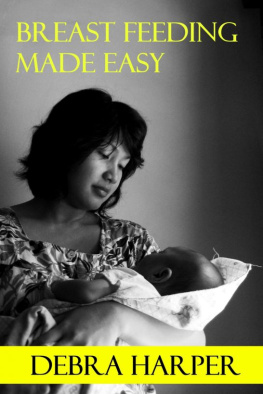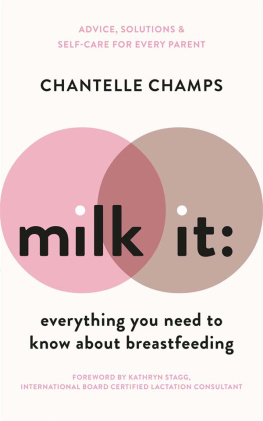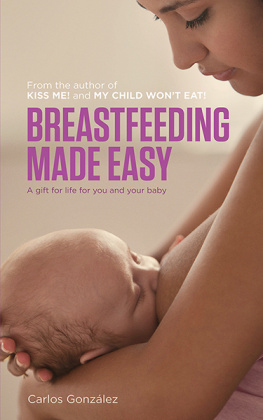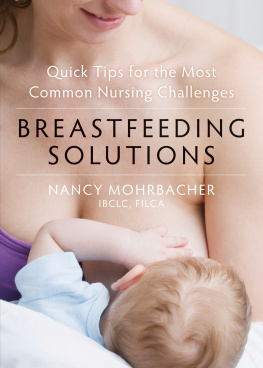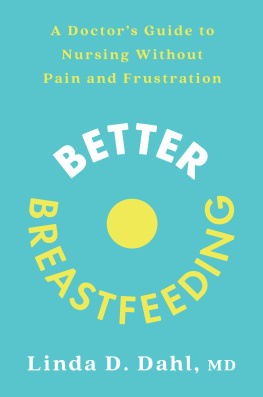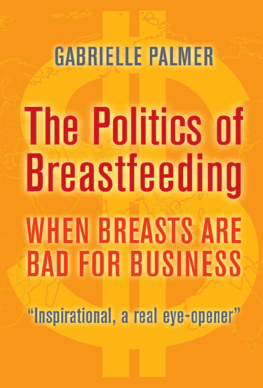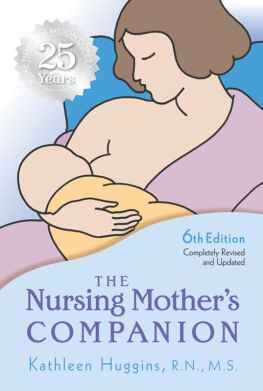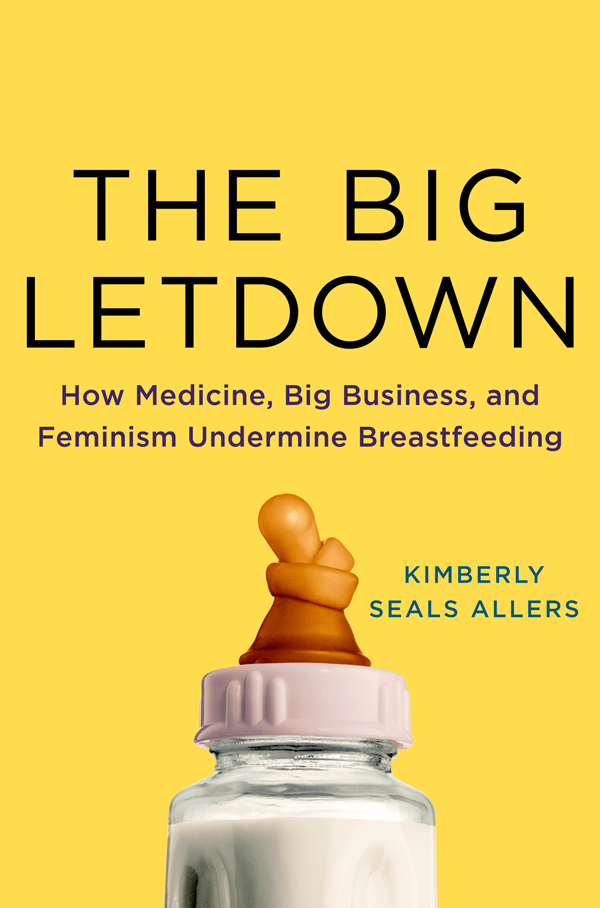Contents
Guide

The author and publisher have provided this e-book to you for your personal use only. You may not make this e-book publicly available in any way. Copyright infringement is against the law. If you believe the copy of this e-book you are reading infringes on the authors copyright, please notify the publisher at: us.macmillanusa.com/piracy.
For my children, Kayla and Michael-Jaden, and for all the little girls who, like me, found their solace in words and their power with a pen
This is a nonfiction work, though the names and descriptions of some individuals have been changed at their request.
I am not a doctor and the information in this book is not intended as a substitute for the advice of the readers own physician or other medical professional. You should consult a medical professional in matters relating to your health or the health of your baby.
And I cried For all the women who have ever stretched their bodies out anticipating civilization and finding ruins.
SONIA SANCHEZ, JUST DONT GIVE UP ON LOVE
The beginning is the most important part of any work, especially in the case of a young and tender thing.
PLATO
I am drivingcorrection: speedingdown the Grand Central Parkway in Queens, New York, wearing only a black T-shirt and some brightly colored pajama pants tucked into my Uggs. Theres a screaming baby in the back seat. Dont worry, shes mine. Thirteen miles at an unmentionable speed later, I arrive at Long Island Jewish Hospital, where, about six weeks earlier, I delivered my eight-pound, six-ounce daughter by Cesarean section. After fumbling with the car seat, I grab the striped cooler bag from the trunk and move quickly through the lobby, past the gift shop and to the elevator bank, refusing to make eye contact, just in case any of those judgmental please shut your baby up types are in the vicinity. At least at the hospital, they may just assume that all the crying is related to a medical problem, not my personal failure. I press the D OOR C LOSE and the floor 3 button simultaneously and so rapidly, Im sure Ive sprained a finger, all the while silently begging God that nobody else gets on. For the ride up, I switch to a swinging, bouncing, and kind of demi-twirling of the car seat combination, hoping this may soothe my child. It doesnt. Just as the elevator doors slowly part, I see my target and make my move, bolting toward my goal: a large door. I turn the doorknob to the left many times and then to the right. I bang and bang on the door. No answer. This is it. My last ditch, desperate attempt for help, quickly followed by the grim realization that there is none to be found. I press my back against the door with all my might and slide slowly to the floor. The feeling of failure is heavy. I pull up my shirt as my braless breast hangs floppily, and make one more, desperate attempt to feed her. She refuses. Her mouth howls. Tears pour down my face. My breasts are engorged and dripping. Nurses, strangers, and hospital personnel step over us. I look aroundbaby crying, dripping breast exposed and dangling, and me, overwhelmed by failureand all I see are shoes. Loafers. Heels. Sneakers. It is the visual confirmation that I have hit bottom. And I have milk stains on my shirt.
That door. Behind that blasted door is the place where every other week the breastfeeding support group happens. And even though it is not the day or the time, I was hopeful that someone, anyone would be there and able to help me figure out why I am suddenly and unexplainably failing at breastfeeding. Instead, it is locked and there is not one lacto-friendly-looking person in sight. I reach for the cooler bag. It was given to me when I was discharged from the hospital. There is infant formula in it. Yesterday, it was the devil. Today, it looks like my messiah in plastic packaging. In the days of my breastfeeding zealousness, I refused to even bring it in the house. But a part of me could not, would not throw it away. Just toss it, I said to myself. Its a subversive tool of the infant formula companies to undermine your breastfeeding success, I ranted to my then husband, who has never been known to turn away any sort of freebieeven a subversive one. But the nice nurse at the hospital had said to take it, just in case. And perhaps this is my just in case. How did she know?
I sit there, fumbling to make a bottle of formula with one hand, while my breast continues to leak. My baby needs to eat. I am literally oozing food. Something clearly has gone awry here. And all of it feels like an act of biological treason. My first job as a mother is to feed my baby, and I am failing miserably already, a mere forty-something days in. I educated myself (read all the books and blogs), prepared myself (even toughened up my nipples prebirth by rubbing them with a towel), motivated myself (Chaka Khans Im Every Woman, on repeat), attended the support group, and still these actions arent enough. At the moment, the experience of breastfeeding just feels absurd and pointless and ridiculously difficult and far more than I expected it to be, and I am profoundly unprepared for all of these emotions. The feeling tumbled me end over end.
Make the bottle. Feed your baby, I say to myself. Its no big deal. Just as Im ripping off the packaging, I hear someone asking me if I need some help. Its a blurry visage, but the voice is of an older woman, and when I look up I see she is wearing a hospital volunteer smock and pin. I blurt out a two-minute run-on sentence about how my baby wont nurse and shes been crying for hours and I desperately hoped someone from the breastfeeding support group would be here but no one is and I dont know what to do.
In the midst of my rambling and sobbing, she says, Wait here. Ill be right back. No mention of the dangling breast or about-to-be-poured formula setup station. She returned with the woman who led our support group.
I was rescued that day, by a kindly older woman. Her name, I learned, was Alice, and while the lactation consultant helps me hand express some milk and get baby Kayla settled and fed, Alice gets me a cup of water, rubs my back, and tells me her own daughter had a similar experience.
In the end, a stranger saves me. Not the pediatrician who is technically responsible for my babys health and nutrition. Not the ob-gyn who apparently only cares about the contents of my uterus until it is emptied but not thirty minutes more. Not the budget-busting $100-an-hour lactation consultant I paid last week, who was unable to accommodate me on short notice this week. For the next hour, watching Kayla finally calm, suckling on my breast, looking at me, eyes brown and blazing, I cant help thinking about the past three hours and wonder if this is what the experience of feeding our young according to our biological norm is supposed to be like. If breastfeeding is natural and best, then why is it so difficult? Yes, it brings unparalleled moments of joy, but why does it also often include so much emotional anguish and suffering for so many women?
Lets be clear, I am your classic type A superachiever, and I have the stress-induced ulcers to prove it. I eat difficult for lunch. I have a masters degree from Columbia University and have worked in some of the worlds toughest newsrooms. But everything I ever imagined about myself as a mother slowly disappeared into the cracks of the hospital floor that day. Certainly, doing something that has kept humanity alive since the beginning of the species should not be such a struggle. And its not just an early-days struggle to learn to breastfeed, but an ongoing social one. Women struggle with nursing in public, being shamed out of retail stores, on airplanes, and even, in one case, out of a lingerie store of all places. Returning to work, we struggle to pump milk for our babies, often being expected to do so in a bathroom stall or other inappropriate place. Employers use terms like accommodating nursing mothers, which makes women feel as if they are being done a special favor for being biologically different from men. We battle against social stigma; if we dare to breastfeed beyond twelve months, we are quickly typecast as some alternative parenting weirdo, even though the World Health Organization and UNICEF recommend breastfeeding for two years and the worldwide average age for weaning is close to three years old.


